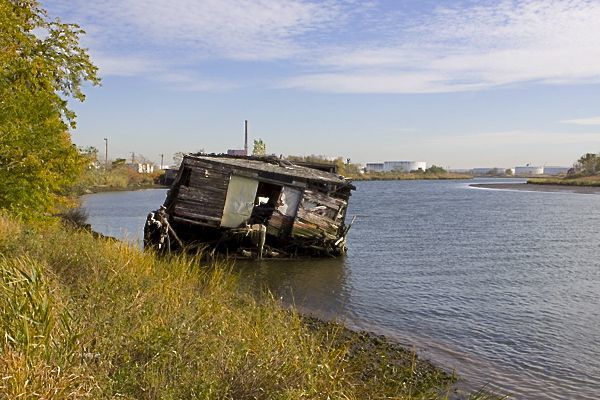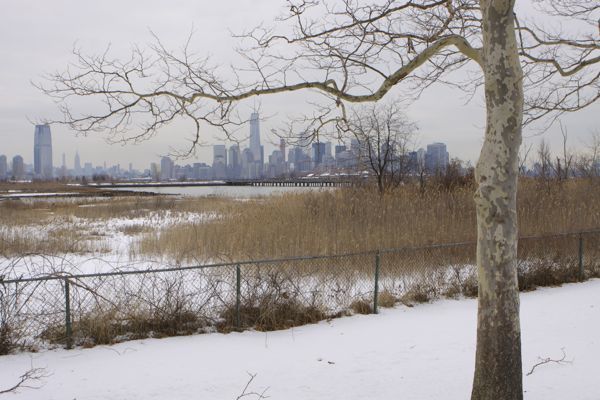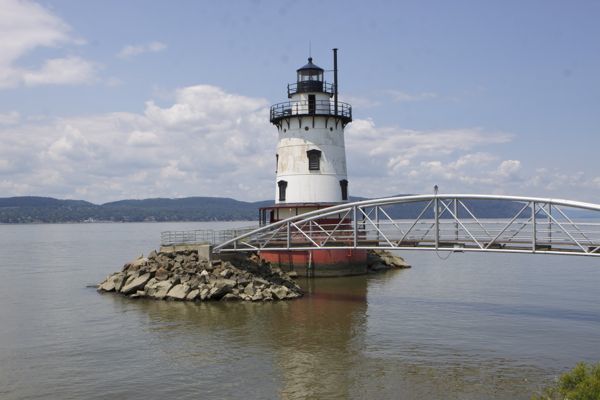Yesterday, a NJ Appellate Court decision struck down the Christie DEP’s controversial public access rules on the basis that DEP lacked legislative authorization under CAFRA to regulate and that the Public Trust doctrine does not authorize DEP regulation (read decision here).
Plaintiffs could have argued that DEP’s rules relied too heavily on local control and failed to honor their Public Trust obligations, but they did just the OPPOSITE.
The decision is a devastating blow to public access to NJ’s coast and tidal rivers and for enforcement of public rights under the Public Trust doctrine.
In addition to striking down the DEP rules and essentially forcing the Legislature to act before enforceable public access rights are established, the Court’s legal rationale may become precedent used to undermine enforcement of Public Trust rights and DEP Public Trust duties in other DEP programs and protections that are based on DEP’s Public Trust duties. These other DEP regulations now could become vulnerable to legal challenge a a result of this decision, if it survives appeal and is allowed to stand.
The plaintiffs made a huge blunder and the court got it badly wrong, so the decision must be appealed by DEP and/or American Littoral Society, who filed an amicus brief in partial support of some of DEP’s arguments. Here’s why:
Amazingly, it was the NY/NJ Baykeeper – not the NJ Builders Association or the NJ BIA or the League of Municipalities, who made THESE ARGUMENTS:
Appellants argue that DEP has again arrogated to itself the management of lands held in public trust, which power is reserved to the Legislature and has not been delegated to DEP. They also argue the Rules are preempted by, or improperly infringe upon, powers reserved to the State’s municipalities. Appellants further contend that the Rules are not authorized by the Coastal Area Facility Review Act (CAFRA), N.J.S.A. 13:19-1 to -21, or any other statute.
Not even the NJ League of Municipalities- fervent guardians of home rule powers – has argued that the DEP lacks authority under CAFRA and the Public Trust doctrine to regulate land use to provide public access.
Plaintiffs also argued that the dedicated Public Access Fund, to which developers contribute in lieu of providing public access onsite created by the DEP rules was not authorized by the legislature, an argument that is very similar to the legal attack by the NJ Builders Association:
In New Jersey Shore Builders Ass’n v. Township of Jackson, 199 N.J. 449 (2009), the Court concluded that the municipal appellants lacked the authority to promulgate ordinances that required developers to set aside open space or make payments in lieu thereof.
It is simply shocking that so called environmental groups would make more retrograde legal arguments on home rule and DEP regulatory authority than the League of Municipalities and the NJ Builders Association.
This legal ineptitude and strategic blunder was brought to you and funded by the Dodge Foundation. Heckaofjob Chris Daggett!
Tim Dillingham of ALS, who I often disagree with, filed an amicus brief in support of DEP, gets it exactly right in this quote from the NJ.Com news story:
“Who will now act as the trustee to protect these interests if not the state Department of Environmental Protection?” Dillingham asked. “The decision would appear to create a void, and in the absence of any state leadership, could promote a return to town-by-town and development-project-by-development-project litigation over the public’s ability — or inability — to access the waterfront.”
Perhaps even worse, the environmentalists are delusional in thinking that the NJ Legislature will pass and Governor Christie will sign legislation authorizing DEP to enforce Public Trust doctrine rights and CARFA land use controls to provide public access to both the shore and inland tidal riverfront lands.
Jeff Tittel of Sierra Club, who wasn’t even involved in the lawsuit, openly exhibits this delusion (NJ.Com story):
“They violated the public trust doctrine by allowing beaches that belonged to all of us to be taken over by beach clubs and private developers,” Tittel said in a statement. “These rules would have taken the side of the 1 percent of those who own the marinas, big houses and the developers over the 99 percent of us that go and use the beaches.”
The environmental groups want the state Legislature to decide who should determine public access.
If Sandy and the risks of climate change and sea level rise have not convinced Trenton policymakers of the need for coastal reforms, do you think public access will, a controversial issue the Legislature has dodged for decades?
Does Tittel seriously think that the Legislature will overrule shore municipalities and developers and set strict standards and delegate broad and sweeping new Public Trust doctrine and land use powers to DEP? Are you kidding me?
The Court’s decision may provide opportunities for certain Legislators running for Governor in 2017 to issue self promotional press releases and introduce legislation, but it is very, very, very unlikely to result in legislation that over-rides the selfish abuse of municipal home rule power to exclude people and actually enforces the Public trust doctrine and provides public access.
And the sloppy thinking here is revealing:
Andrea Leshak, a staff attorney for Hackensack Riverkeeper, which filed the suit alongside with the NY/NJ Baykeeper, said the decision is a victory for beachgoers.
“It will be good for the typical beachgoer in that their public access is not limited by DEP rules,” she said.
Would Ms. Leshak like to explain, in concrete terms, how that “typical beachgoer” will benefit? Doesn’t she know that access restrictions are imposed by municipalities and private property owners, not DEP? That DEP’s rules failed to end this abuse?
2) Judge admonishes DEP’s Deputy Attorney General
In an unusual move, the Court’s opinion went out of its way to admonish the DEP’s lawyers.
The Court asked them a specific question and were given a legally false answer:
During argument, we asked the Deputy Attorney General representing DEP whether municipalities that did not adopt an MPAP could suffer other negative consequences, specifically eligibility for Green Acres funding. See 44 N.J.R. at 2630-32 (comments and responses 464-83). We were assured that they would not. However, we note that DEP’s current Green Acres regulations provide:
(a) The following are ineligible to apply for Green Acres funding:
….
4. Any local government unit that does not currently provide, or have active plans to provide, public access to the waterfront and to tidally-flowed and dry sand areas subject to the Public Trust Doctrine, consistent with the requirements of the Coastal Zone Management Rules at N.J.A.C. 7:7E–8.11 and governing law.
To emphasize the DEP lawyer’s false assurance and failure to mention the Green Acres sanction, the Court again unusually cited a harsh statement by DEP Commissioner Martin in a news clip:
DEP’s Commissioner called the consequences for municipalities not participating in the MPAP scheme “‘the club if we need it.‘”3
In addition to exposing the DAG’s false assurance and the conflict with the embarrassing DEP Commissioner’s Martin’s “club” comment, the Judge also criticized the DEP’s sloppy legal arguments and mere assertions that lacked legal reasoning.
Perhaps the Court was engaged in the legal equivalent of suspended NY Giants receiver Odell Beckham – emotionally out of control retaliation for shoddy legal work and deception by DEP’s lawyers. Let’s hope the Judge is overridden in the same way that Beckham was suspended by the NFL.
3) Any silver lining?
As a general matter, it is longstanding environmental advocacy policy to support legal arguments that DEP has broad authority delegated by the Legislature. Arguments that a regulatory agency lacks legislative authority (ultra vires challenges) are unusual and should be rarely used by environmentalists and only after thinking through the consequences.
That didn’t happen here – or if it did, very poor judgements were made.
Which poor judgments reminds me of a troubling and related episode. Let me share that story now.
Literally moments before then Assemblyman Barnes’ (now Senator) bill that would have created a Coastal Commission was about to be heard by the Assembly Environment Committee, I happened upon a meeting between Barnes and 6 or so NJ environmental leaders.
As I entered, the leaders of two coastal groups (ALS and COA) were threatening to OPPOSE Barnes’ bill because it would pre-empt local land use powers.
After hearing that, I interrupted and strongly challenged that view, arguing that regional planning and land use regulation by a Coastal Commission was a long ignored and vital shore protection and required to begin the climate change adaptation process. I argued that virtually all land use experts and advocates agree that home rule was major impediment to environmentally sound land use and I questioned how it was possible that coastal conservation groups were supporting home rule over regional planning and Coastal Commission enforced land use powers.
ALS and COA backed down at the meeting and Barnes thanked me for “saving his ass” from the huge political embarrassment of coastal groups opposing his Coastal Commission bill.
Later, in testimony to the Committee, ALS and COA offered tepid support for his bill, but never lifted a finger to pass it and it ultimately quietly died.
Now, back to the silver lining I suggested:
Perhaps this decision could support the ultra vires arguments I have made against the riparian trading and mitigation scheme in DEP’s proposed new Flood Hazard regulations and in challenging the Pinelands Commission’s regulations regarding the “Certificate of Filing” process for private development under the CMP (see point #7).
Other than those remote possibilities, I see nothing but downside in this decision.































